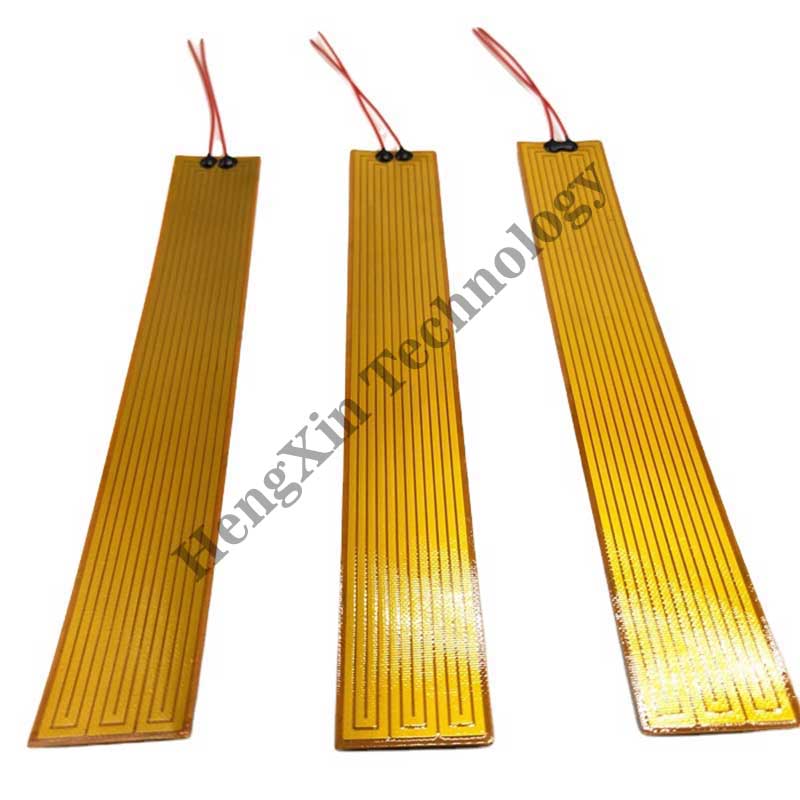What is Industrial Film Heating?
Industrial film heating refers to the use of flexible, thin heating elements that can be easily integrated into various industrial processes. These films are typically made from materials like polyester or polyimide, with a conductive heating layer that efficiently converts electricity into heat. Their flexibility and lightweight nature make them ideal for applications where traditional heating elements may be too bulky or inefficient.
Key Benefits of Industrial Film Heating:
- Energy Efficiency: Film heaters are designed to provide uniform heat distribution with minimal energy consumption. This leads to lower operating costs and reduces the environmental impact of industrial operations.
- Space-Saving Design: Due to their thin and flexible nature, film heaters can be integrated into tight spaces and complex machinery, making them ideal for industries with limited space or those requiring compact heating solutions.
- Fast Heating and Response Times: Industrial film heaters can quickly reach desired temperatures and offer precise temperature control, improving process efficiency and minimizing downtime in production environments.
- Durability: These heating films are resistant to wear and tear, chemicals, and extreme temperatures, ensuring long-lasting performance even in harsh industrial conditions.
- Customization: Film heating systems can be tailored to meet specific application requirements. They are available in various shapes, sizes, and power outputs, making them versatile enough for a wide range of uses.
Popular Industrial Film Heating Applications
- Automotive Industry:
- Defrosting and Demisting: Industrial film heaters are used in automotive applications, such as heated windows, rearview mirrors, and windshields, helping to reduce fogging and ice buildup.
- Seat Heaters: Flexible heating films are integrated into automotive seats to provide comfort during colder weather.
- Electronics Manufacturing:
- Soldering and Bonding: Film heaters are essential for precise heating in the electronics industry, ensuring accurate temperature control during soldering and bonding processes.
- Testing and Simulation: They are used to simulate environmental conditions for product testing, providing controlled heat for electronic devices during quality assurance procedures.
- Packaging and Food Industry:
- Temperature Control in Packaging: Industrial film heaters are used in packaging lines to maintain optimal temperature conditions, ensuring that packaging materials like plastics remain pliable.
- Food Warming: Film heaters are also employed in food processing and packaging industries to maintain desired temperatures for keeping food items warm or for ensuring consistency during packaging processes.
- Medical and Laboratory Equipment:
- Temperature Regulation: Industrial film heaters are used to regulate temperatures in medical devices, laboratory equipment, and diagnostic tools, ensuring safe and effective performance.
- Heating Mats and Blankets: In medical settings, flexible heating films are incorporated into warming pads or blankets, providing controlled heat for patient comfort.
- Aerospace and Defense:
- Surface Heating: In aerospace applications, film heaters are used for anti-icing systems and for maintaining the temperature of critical components in spacecraft and aircraft.
- Battery Heating: Flexible heaters are applied to maintain optimal battery temperatures in defense systems, enhancing performance and longevity.
- Renewable Energy:
- Solar Power Systems: Film heaters are integrated into solar panels to prevent ice buildup, ensuring maximum energy efficiency in cold climates.
- Wind Energy: Similarly, film heaters are used to prevent ice accumulation on wind turbine blades, optimizing energy production.
How Industrial Film Heating Enhances Production
- Increased Process Control: With precise temperature regulation, industrial film heaters allow for better control over manufacturing processes, leading to improved product quality and consistency.
- Reduced Downtime: Because these heaters heat up quickly and can be controlled remotely, production processes experience less downtime, leading to increased productivity.
- Cost-Effective Solutions: Despite their advanced technology, industrial film heating systems are relatively low-cost compared to traditional heating methods, providing businesses with significant cost savings.
- Environmental Sustainability: By using less energy and offering better heat distribution, industrial film heaters contribute to reducing the carbon footprint of industrial processes.






